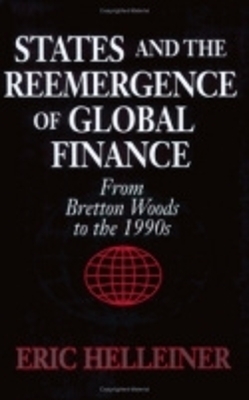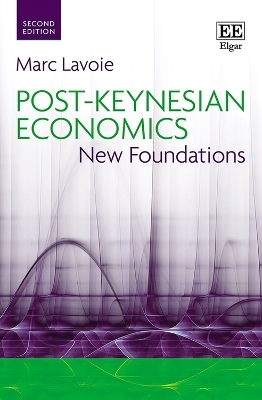
States and the Reemergence of Global Finance
Cornell University Press (Verlag)
978-0-8014-2859-3 (ISBN)
Helleiner begins by highlighting the commitment of advanced industrial states to a restrictive international financial order at the 1944 Bretton Woods conference and during the early postwar years. He then explains the growing political support for the globalization of financial markets after the late 1950s by analyzing five sets of episodes: the creation of the Euromarket in the 1960s, the rejection in the early 1970s of proposals to reregulate global financial markets, four aborted initiatives in the late 1970s and early 1980s to implement effective controls on financial movements, the extensive liberalization of capital controls in the 1980s, and the containment of international financial crises at three critical junctures in the 1970s and 1980s.
He shows that these developments resulted from various factors, including the unique hegemonic interests of the United States and Britain in finance, a competitive deregulation dynamic, ideological shifts, and the construction of a crisis-prevention regime among leading central bankers. In his conclusion Helleiner addresses the question of why states have increasingly embraced an open, liberal international financial order in an era of considerable trade protectionism.
Eric Helleiner is CIGI Chair in International Governance and Associate Professor of Political Science at the University of Waterloo. He is the author of The Making of National Money: Territorial Currencies in Historical Perspective and coeditor of Economic Nationalism in a Globalizing World, both from Cornell.
1. IntroductionPART I: THE RESTRICTIVE BRETTON WOODS FINANCIAL ORDER
2. Bretton Woods and the Endorsement of Capital Controls
3. Continuing Caution: The Slow and Limited Move to ConvertibilityPART II: THE REEMERGENCE OF GLOBAL FINANCE
4. Support for the Euromarket in the 1960s
5. Failed Cooperation in the Early 1970s
6. Four Turning Points in the Late 1970s and Early 1980s
7. The Liberalization Trend in the 1980s
8. Weathering International Financial CrisesPART III: CONCLUSION
9. Explaining Differing State Behavior in Trade and FinanceWorks Cited
Index
| Erscheint lt. Verlag | 3.6.1994 |
|---|---|
| Verlagsort | Ithaca |
| Sprache | englisch |
| Maße | 152 x 229 mm |
| Gewicht | 907 g |
| Themenwelt | Wirtschaft ► Volkswirtschaftslehre ► Finanzwissenschaft |
| Wirtschaft ► Volkswirtschaftslehre ► Makroökonomie | |
| ISBN-10 | 0-8014-2859-9 / 0801428599 |
| ISBN-13 | 978-0-8014-2859-3 / 9780801428593 |
| Zustand | Neuware |
| Haben Sie eine Frage zum Produkt? |
aus dem Bereich


